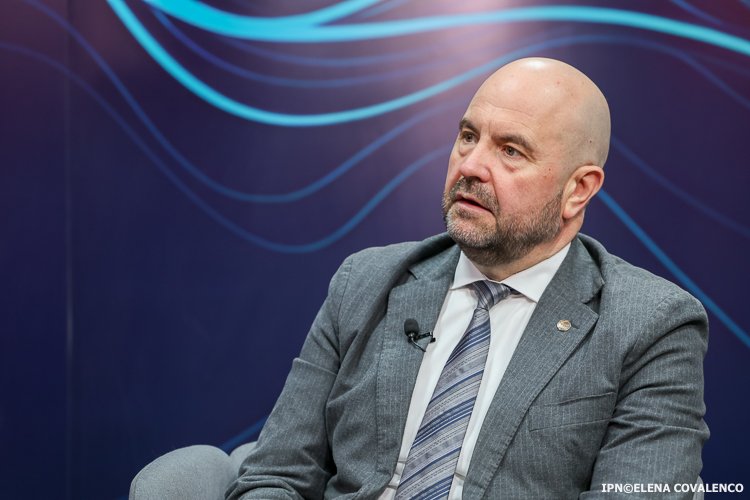The Republic of Moldova aims to fully integrate into the main European trade routes through an extensive program that includes the construction of the highway to Ungheni, the expansion of the Chisinau International Airport and the inauguration of the Ungheni-Ungheni Bridge, a symbolic project that opens the connection with Romania and, implicitly, with the European Union, IPN reports.
Minister of Infrastructure and Regional Development Vladimir Bolea in an interview with IPN said that all these initiatives aim to reconnect Moldova to the European Economic Area and major trade networks. “All the actions we are taking, whether we are talking about roads, railways or flights, are meant to reconnect our country to the European trade networks,” said the official.
The construction of the highway that will connect Chisinau to Ungheni is an essential project, and the Romanian side is expected to complete the section by 2028-2030. “Once the European highway is completed, it will be much easier to get from the EU to Moldova by road,” explained the minister.
Another significant step was the launch, in April 2024, of the works on the Ungheni–Ungheni Bridge, symbolically called the ” Flower Bridge”, which will represent the end of the highway on the Romanian side. It marks the beginning of the development of transport networks that will connect Moldova not only with Romania, but also further with Odessa and the Black Sea. “The objective is for the roads to Odessa or the Black Sea to cross the Republic of Moldova, not to bypass it,” pointed out Vladimir Bolea.
The expansion of the Chisinau International Airport is another priority. The minister highlighted that the adoption of the Aviation Code allowed the airport to operate according to European standards, which attracted more and more airlines. According to Vladimir Bolea, the transformation of the Chisinau Airport into a regional aviation hub would mean a major success, because “such a hub means attracting financial resources, creating jobs and boosting the economy as a whole”. In 2024, more than 4 million passengers transited the airport, a significant increase that confirms the success of the implemented policies.
The minister noted that all the legislative reforms are interconnected and aim to ensure compliance with EU standards and facilitate both citizens’ mobility and the country’s economic development.
The infrastructure program is supported by European funds and partnerships with international companies, and the expected results include reducing travel time, increasing road safety and attracting investments.
